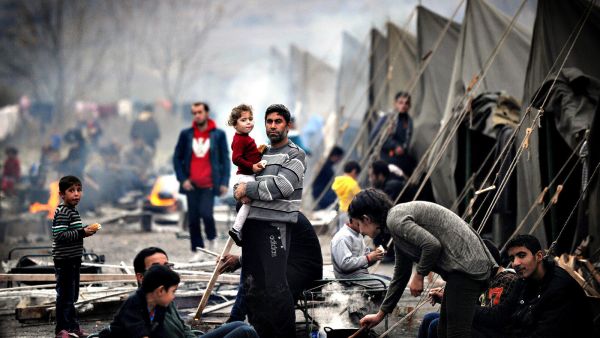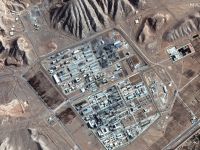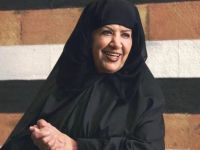While maternal health care and family planning for Lebanon’s refugees continues to focus on the female population, health experts have proposed that their male counterparts be more involved in the conversation. This, panelists at a conference on maternal health held at the American University of Beirut Wednesday argued, would help contribute to reducing the risk of early marriage and adolescent pregnancy.
During the discussion, speakers from the public health and humanitarian aid sectors pointed to improving access to, availability and awareness of quality health care, in order to improve maternal health among Lebanon’s Syrian refugee population.
According to statistics from the Health Ministry, the maternal death rate among Syrians in 2017 was 27 per 100,000 births, compared to nine for Lebanese women.
Manar Zaitar from ESCWA’s Center for Women said the high cost of childbirth in Lebanon, low ability to buy medicine and lack of awareness over the type of care available leads to “stories full of tragedy and injustice” among Syrian refugee mothers, particularly those who marry young.
While educating female Syrian refugees on the availability of health care and promoting understanding of issues surrounding maternal health and family planning is paramount, multiple speakers said men needed to be included in conversations to maximize support for mothers and children.
One of the key considerations when talking about maternal health in the context of Syrian refugees in Lebanon is the young age at which many get married.
According to a 2016 survey of Syrian refugee girls in the three Bekaa villages of Al-Marj, Barr Elias and Qubb Elias conducted by a team from AUB’s Health Promotion and Community Health Department, a quarter of girls under 18 were married, and of that, 60 percent had already had at least one pregnancy.
Early marriage is followed by early pregnancy, which has been linked to increased risks for both mother and baby. According to the World Health Organization, adolescent mothers - those aged 10 to 19 - are more likely to suffer complications such as eclampsia and systemic infections, while babies are greater at risk of low birth weight, preterm delivery and severe neonatal conditions.
However, for Sawsan Abdulrahim, a community health expert at AUB, it is important to remember that while girls undoubtedly suffer from the consequences of early marriage, “the husbands are also young, and have been out of school since they were 12 or 13 years old.”
{"preview_thumbnail":"https://cdn.flowplayer.com/6684a05f-6468-4ecd-87d5-a748773282a3/i/v-i-8…","video_id":"8797f0da-5f3f-4596-959b-0bb1185a01c0","player_id":"8ca46225-42a2-4245-9c20-7850ae937431","provider":"flowplayer","video":"Notre Dame Fire Reminds Syria, Iraq, Yemen of History Lost During War"}
This means that both girls and boys miss out on important teaching on puberty, sexual health and, crucially, the risks of child marriage and early pregnancy, meaning they are ill-equipped to cope if complications arise during pregnancy.
The birth rate among Syrian refugees is higher than that of their Lebanese host populations, due to a combination of a traditional expectation for large families in their hometowns and a wish to “replace family members” who have died in the civil war that broke out in 2011, AUB health professor Tamar Kabakian-Khasholian said.
Furthermore, Syrian men have been found to put additional pressure on their young wives to bear children as part of what obstetrics and gynecology professor Fadi Mirza called “the myth of a link between conception and manhood.”
When it comes to deciding whether to have more children, it is often the husband who makes decisions, Micheline Sarkis, a consultant for Doctors Without Borders (MSF), said, while women “always have to bear the burden of family planning,” despite often having their reproductive freedom removed.
As a potential way to address this disparity, MSF is planning to build a new health center in the Burj al-Barajneh Palestinian refugee camp. But rather than calling it a “maternal” health center, it will instead be called a “family planning clinic.”
This, Sarkis said, will help to include men and make them feel “they are part of the discussion with the health provider.”
This article has been adapted from its original source.








